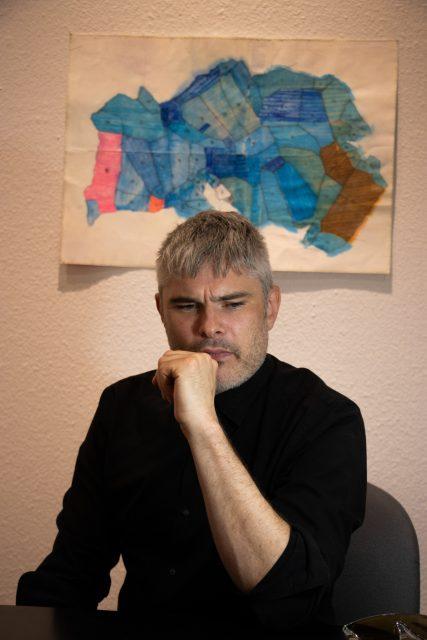HOPE SMITH
editor-in-chief
hope.smith393@my.tccd.edu
Young people are increasingly experiencing an uptick in struggling with body-image.
TR Campus counselor Juan Olivera says he has seen students struggle with eating disorders and knows that it is hard for both men and women to open up about their mental health. For those with negative self-image, it can start with physical appearance.
“College age is when eating disorders really start coming out in both men and women, and other individuals in general,” he said. “So, I just think it’s something that really needs attention because it can be minimized, brushed to the side or even encouraged by some people.”
Olivera ran a workshop Oct. 10 on TR Campus about self-image. There, he guided attendees through information on self-esteem and body image, and how they can negatively affect a person’s way of life. This workshop for him was personal, as well, because he struggled with an eating disorder when he was a teenager.
“I think today, it’s more prominent than it’s ever been,” Olivera told the group. “Before social media, you would watch things on movies, on TV, you would have to go out and buy magazines and things of that nature to see these things. But now, they’re just a tap away.”
NW student Karissa Mayorga Pina has also struggled with an eating disorder and feels that social media had a role in influencing her.
“So before social media celebrities, I never actually had body images issues before,” she said. “My body image issues started when I was in high school right after looking to celebrities. And then suddenly, I became so self-conscious.”
Mayorga Pina thinks people around her typically have a negative self-image. She said much of it is about societal pressure for people to be or look good. When it comes to men and women, it seemed like society is more focused on marketing weight loss to women even though both men and women suffer from body dysmorphia.
Olivera advised that it is important that someone struggling with disordered eating have social support, whether it be from family, instructors or mentors.
“Staying hydrated is extremely important as well and drinking water. And at least eating something,” he said. “Eating a small snack is a lot better than skipping an entire meal, and not having any type of nutrition.”
He says that one of the key components of bad self-image comes from body dysmorphia, which is the negative view of a person’s own appearance that can become extreme and obsessive.
“Body dysmorphia can come to a point where it becomes a psychological disorder, a mental health disorder,” he said. “Just depending on the severity of that and how it goes, how someone takes care of these thoughts, when they begin to arise, can really determine how the course of this goes over time.”
NW student Aidan Garcia has noticed self-image struggles at the gym he goes to.
“When I go to the gym, people are always on the scale trying to make some type of difference,” he said. “And then same with me. I’m trying to get bigger, but also leaner at the same time. So it’s like, constantly trying to go between different self-images that I have for myself.”
TR student Johana Trejo has started to take her mental health more seriously since noticing how she needed to take more time to care of herself and her mental health. Since addressing it, she has changed the way she presents herself.
“I stopped wearing makeup, I stopped wearing tight clothes, I did not feel comfortable,” she said. “So, I wear loose clothes, active clothes because you never know what the day brings. I take it day by day now.”
Trejo believes focusing on mental health is important and wants to share what she learns from workshops like Olivera’s with the people around her.
Mayorga Pina urges people who are developing an eating disorder or currently have one to ask for help before it gets worse.
“t’s definitely a difficult thing to do,” she said. “Because in your head, you’re thinking, ‘Oh, you’re fine,’ but in reality, you know you’re not.”





























